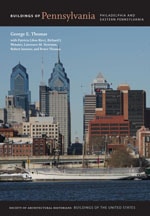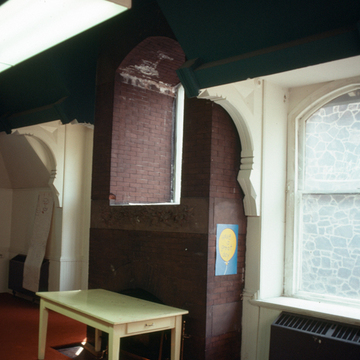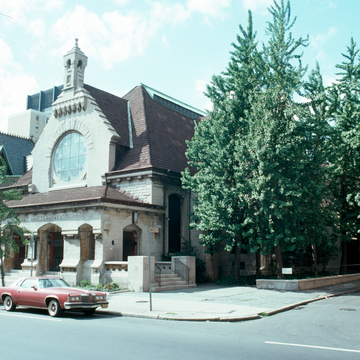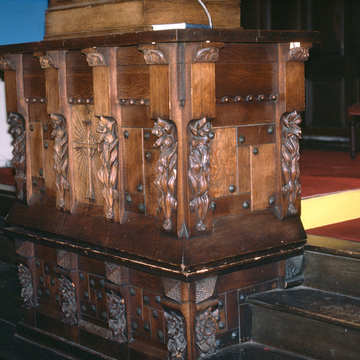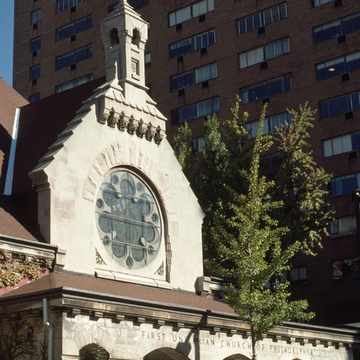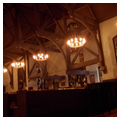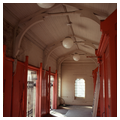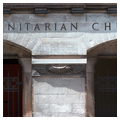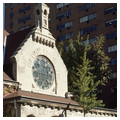The 2100 block of Chestnut Street is the site of two important churches that suggest the poles of Philadelphia design. Each comments on the opposing strategy. At S. Van Pelt Street is Frank Furness's sadly altered but still remarkable building, designed for his father's congregation in 1883. As was customary, the parish house to the rear was built first; the Greek cross–plan church was begun the following year and completed in 1886. Its most remarkable exterior feature, a tile-roofed pyramidal porte-cochere, carried on stumpy rusticated columns of the limestone of the church and held together with iron tie rods, was removed when Grant Simon made a more conventional entrance to the parish house as a part of a general renovation in the 1950s. The interior of the church is something of a wreck—but still worth seeing. Furness's structural optimism is reflected in the immense wood trusses that have required additional posts and tie rods. The brilliant red and blue hues of the interior recall his father's admonition to his son's fellow architects at the 1870 AIA convention that they were “street preachers” whose buildings should keep the congregation awake if the sermon failed in that mission. The Furness-designed leaded glass in floral designs and astonishing carved church furniture, as well as several Tiffany windows, are well worth finding the sexton for admission.
You are here
First Unitarian Church
If SAH Archipedia has been useful to you, please consider supporting it.
SAH Archipedia tells the story of the United States through its buildings, landscapes, and cities. This freely available resource empowers the public with authoritative knowledge that deepens their understanding and appreciation of the built environment. But the Society of Architectural Historians, which created SAH Archipedia with University of Virginia Press, needs your support to maintain the high-caliber research, writing, photography, cartography, editing, design, and programming that make SAH Archipedia a trusted online resource available to all who value the history of place, heritage tourism, and learning.














